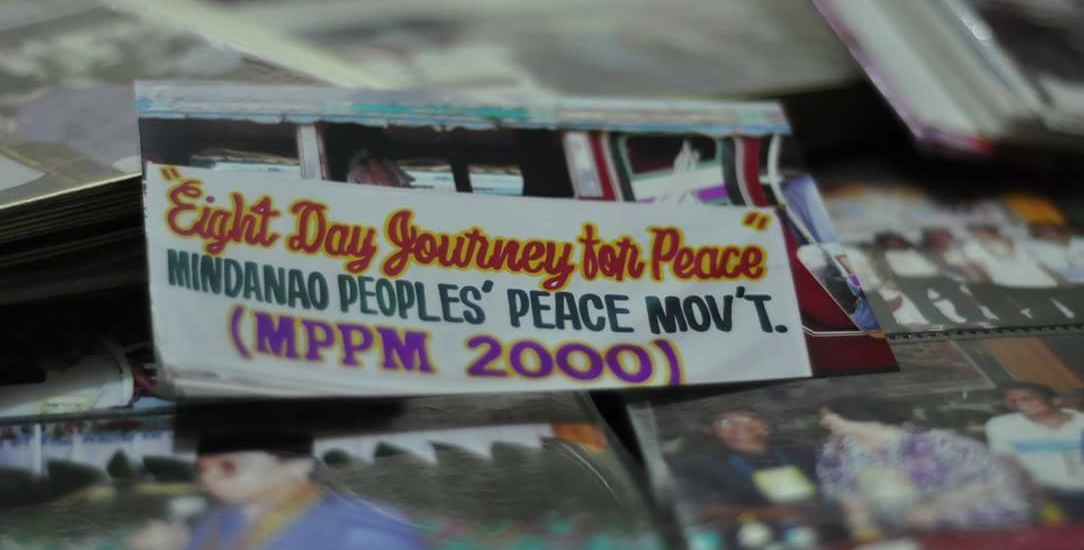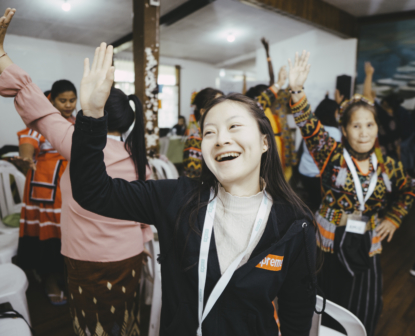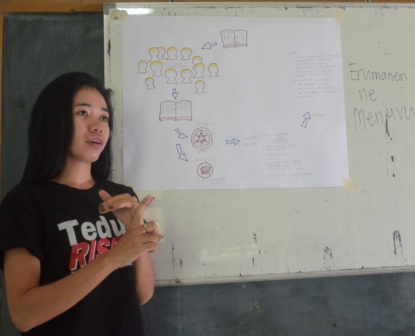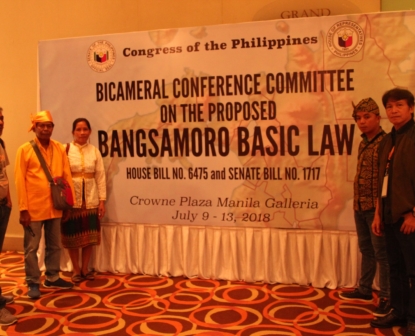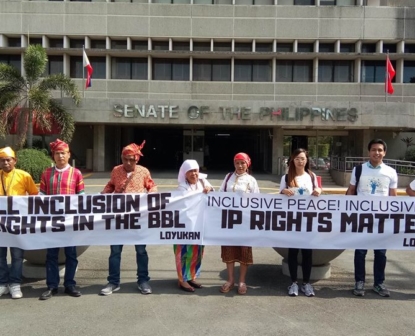Project
Indigenous Peoples (IP) Voice
-
Amount Funded
66,890 EUROProject Duration
01 Aug 2017 - 31 Jul 2018 -
-
Lead organisation
-
The Mindanao Peoples’ Peace Movement (MPPM) is an alliance/network and coalition of peoples’ organisations, and peace, human rights and environmental groups advancing the participation and engagement of the grassroots tri-people (Katawhang Lumad, Bangsamoro and Katawhang Migrante) in building peace in Mindanao in the Philippines. It was established in the year 2000 when former President Joseph Estrada launched an “All Out War” against the Moro Islamic Liberation Front (MILF). MPPM was a product of the 1st Mindanao Grassroots Peace Summit in June 2000 that called for a STOP to the WAR in MINDANAO. Since its inception, it has supported the assertion of the indigenous peoples for the inclusion of their rights in the Bangsamoro Basic Law (BBL).
-
Organisation
The Mindanao Peoples’ Peace Movement (MPPM) is an alliance/network and coalition of peoples’ organisations, and peace, human rights and environmental groups advancing the participation and engagement of the grassroots tri-people (Katawhang Lumad, Bangsamoro and Katawhang Migrante) in building peace in Mindanao in the Philippines. It was established in the year 2000 when former President Joseph Estrada launched an “All Out War” against the Moro Islamic Liberation Front (MILF). MPPM was a product of the 1st Mindanao Grassroots Peace Summit in June 2000 that called for a STOP to the WAR in MINDANAO. Since its inception, it has supported the assertion of the indigenous peoples for the inclusion of their rights in the Bangsamoro Basic Law (BBL).
-
Project
IP Voice: Full inclusion of Indigenous Peoples’ Rights in the Bangsamoro Basic Law is an 18-month project by the Mindanao Peoples’ Peace Movement (MPPM). The project improved the security of IPs (indigenous peoples) in the proposed Bangsamoro Territory through the full inclusion of their rights in the proposed Bangsamoro Basic Law (BBL), strengthened capacities of IP leaders and organisations, and increased IP engagement in the Bangsamoro Peace Process. Specifically, this project supports the assertion of the Teduray, Lambangian and Erumanen ne Menuvu tribes in Maguindanao and North Cotabato. This is in line with the resumption of the peace process between the Philippine Government and the Bangsamoro, with vital issues on the negotiaton table such as the rights to territory, identity, and self-governance of the IPs in the future Bangsamoro Government. This project was a continuation of a previous advocacy programme of the target IP groups that were fully supported by MPPM. Although the right to self-determination assertion of the IPs has been supported by MPPM since 2004, it was only in 2014 that intensified campaign for the inclusion of IP rights in the BBL was pursued.
-
-
IP Voice: Full inclusion of Indigenous Peoples’ Rights in the Bangsamoro Basic Law is an 18-month project by the Mindanao Peoples’ Peace Movement (MPPM). The project improved the security of IPs (indigenous peoples) in the proposed Bangsamoro Territory through the full inclusion of their rights in the proposed Bangsamoro Basic Law (BBL), strengthened capacities of IP leaders and organisations, and increased IP engagement in the Bangsamoro Peace Process. Specifically, this project supports the assertion of the Teduray, Lambangian and Erumanen ne Menuvu tribes in Maguindanao and North Cotabato. This is in line with the resumption of the peace process between the Philippine Government and the Bangsamoro, with vital issues on the negotiaton table such as the rights to territory, identity, and self-governance of the IPs in the future Bangsamoro Government. This project was a continuation of a previous advocacy programme of the target IP groups that were fully supported by MPPM. Although the right to self-determination assertion of the IPs has been supported by MPPM since 2004, it was only in 2014 that intensified campaign for the inclusion of IP rights in the BBL was pursued.
-
”Being born to a family whose father is an inactive member of Erumanen ne Menuvu and mother is a Cebuano, I have limited background of the issues that my tribe is facing like the issue on territory. If not for MPPM I would have not understood the struggle our leaders have been fighting for. They have been very brave to assert our right to our ancestral domain. And now, being a youth, I have become one of them who continue to fight for our territory.” Leah Ignacio, Erumanen ne Menuvu Youth Tribal Leader
The main objective of this project was to achieve Full inclusion of Indigenous Peoples’ Rights in the Bangsamoro Basic Law specifically asserting the Teduray, Lambangian and Erumanen ne Menuvu tribes in Maguindanao and North Cotabato, that Leah above speaks of. Leah also reflected on her own journey within this project in this article The Next Generation Leader published by Voice.
Because of the project, the informed communities and leaders have become actively involved in monitoring, documenting, and feedbacking of human rights and IP rights situation in their respective communities, i.e. IP killings, displacement and armed conflicts. Capacitated IP leaders have become more active in representing their respective tribes and organizations in different peace and policy processes to negotiate and lobby for the recognition of their rights. Among these processes are local and national dialogues, congressional hearings and consultations, meetings and discussions with relevant legislators and committees in both houses of the congress.
Specifically:
- On July 23, 2018, Congress passed the BOL with significant provisions on IP rights
- During the BBL deliberations from May to July 2018, 10 senators and 3 congressmen/woman engaged by trained and informed IP leaders from Mindanao raised the proposals of the IPs and Loyukan (an IP support group composed of indigenous political structure and IP advocate organizations and individuals).
- On March 18, 2018, 9 young indigenous people (4 from the Erumanen ne Menuvu of North Cotabato and 5 from the Teduray and Lambangian in Maguindanao) started to utilize their acquired skills in visual short telling to develop stories
- In the first quarter of 2018, 40% (12 out of 30) of trained and informed indigenous leaders from Maguindanao and North Cotabato started to engage legislators (congressmen/women and senators) and other actors (AFP) for the promotion of their agenda and inclusion of IP rights in the BOL
- In the first quarter of 2018 Indigenous Political Structures (IPS) of the Teduray and Lambangian and Erumanen nu Menuvu have submitted position papers, based on the said policy proposals, during the BBL consultations and public hearings of both house of the Congress held in Midsayap, Cotabato City and North Cotabato
- In 2018, IP issues/demands/policy proposals vis-a-vis IP rights in the BBL and other related issues are published in the local and national media
- In May 2018, IP support groups for the full inclusion of indigenous peoples rights in the Bangsamoro Basic Law broadened with additional 4 organizations (WLB, IDefend, PhilRights and IIPV) actively supporting IP during the BBL deliberation in the Senate and House of Representatives.
- In the height of the campaign for the Full inclusion of IP rights in the BBL from 2017 – 2018, informed and trained young Teduray, Lambangian and Erumanen nu Menuvu leaders have actively participated in the assertion for their rights as indigenous peoples like Leah quoted above.
Through the Mindanao Peoples Peace Summit organised by MPPM, Timuay Alim Bandara, a Council of Leaders Member of the Timuay Justice and Governance, shared that the development of Loyukan, a group that developed during the height of lobbying for IP inclusion in the Bangsamoro Basic Law. He mentioned that through the project with Voice, they were able to have some success with their lobbying in Congress and the Senate. This happened by converging with CSOs, and which has helped them in developing capacities in advocacy and confidence to work and dialogue with key decision-makers. Through these convergences, he also mentioned that small success in the communities can be seen, such as the increased capacity to lead and have a more informed decision-making process. Acts of unity happened especially as they continue to be highly involved in the peace process.
Additionally, MPPM was able to explore effective means of communicating with the indigenous communities beyond the traditional meetings, forums, seminars and discussions. The Keetew, an exhibit that contains visuals like maps, traditional crafts, videos, pictures, statistics, printed news headlines pertaining to IP rights assertion, and issues and challenges faced by IP communities got positive feedback from the communities and leaders.
MPPM future plans include ensuring that non-moro indigenous perspectives are included in all discussions of the Bangsamoro.
-
News

